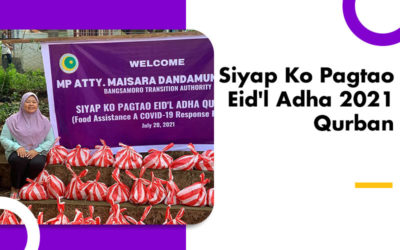Creation of a Special Office focused on the welfare and identity-needs of Bangsamoro identifying communities outside of BARMM.

Social services that bring basic survival needs are few and far in between. Especially for the IDPs, being a non-voter and the lack of legal identification documents deters most of them from accessing the host LGU’s basic social services and assistance to indigents. They are not part of the budget and therefore have no approved allocation in the LGUs for shelter, food, water, cash, health, education, loan and other forms of assistance usually extended to regular constituents.
Unemployment among the adults and youth, including lack of skills to be employable, is also a top concern. While some young people have been able to finish tertiary education, there are those who lack the financial capacity to be able to take board or licensure exams.
Providing education for children and youth has become more difficult as families who lack the income to support even the most basic school materials and the students’ transportation to and from school. There is a call among young people to be schooled in the Madrasah yet the Uztadj and Uztadja in the Madrasah are not regularly compensated, as they depend solely on the number of students and school fees generated. The Madrasah is an important concern for BCOs as part of the identity of the Bangsamoro Muslims is education intertwined with religious teachings. A related concern, traditional leaders need support through subsidy and provision for salary.

Widows and orphans require immediate aid for survival needs such as food and livelihood/ employment as well as assistance to their children pursuing education in regular schools and/or Madrasah. Related to this, former MILF women and men also need livelihood and employment assistance, including through skills training and start-up grants.

